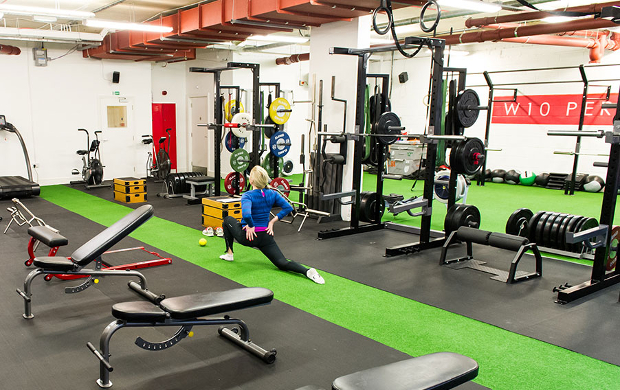 Should you exercise less to lose more?
Should you exercise less to lose more?
 When it comes to working out and eating well, most of us are extremists to a greater or lesser degree — it’s an all-or-nothing approach. When we are ‘on it’, it is regular gym sessions, plenty of fruit and vegetables and social abstinence, which of course means reduced calories and improved detoxification as a result of reduced alcohol consumption. But is this the right approach if it is long term results that we are after, or would we be better served adopting a more moderate year-round approach?
When it comes to working out and eating well, most of us are extremists to a greater or lesser degree — it’s an all-or-nothing approach. When we are ‘on it’, it is regular gym sessions, plenty of fruit and vegetables and social abstinence, which of course means reduced calories and improved detoxification as a result of reduced alcohol consumption. But is this the right approach if it is long term results that we are after, or would we be better served adopting a more moderate year-round approach?
I understand that we all need periods of focus, punctuated with more relaxed periods — this applies to most aspects of life. The issue for most of us, however, is that the further removed our periods of focus and relaxation are, the harder it is to stay on track with any exercise and nutrition regime. What we embark on is often far too removed from our usual habits and routine, which makes the amount of change very difficult to implement, and even more difficult to stick to. This is particularly true with nutrition, which is the major reason that many of us are left feeling so frustrated when give in.
It is not uncommon for some of us to metaphorically roll from the sofa, six weeks prior to our holiday, determining to exercise four or five times per week, while simultaneously removing carbs from our diet and eating less. All reasonable strategies on the face of it, but together they represent a fitness and nutrition cocktail that is highly likely to lead to an early retreat back to said sofa. The reason is that the nutrition and exercise changes, when introduced together, are too extreme for us to maintain. Assuming that it is long-term changes that we would like to see, we would be far better served to do things gradually.
In simplistic terms, we need a calorie deficit to lose fat, and a calorie surplus to add muscle. Given that most of us are looking to lose weight and increase our fitness, while maintaining our muscle mass preferably, we simply need to find a combination of diet and exercise that leaves us in a calorie deficit. We can achieve this by exercising more, eating a bit less, or, if we are being more extreme, by doing both of these things together — hence why we tend to revert to the ‘eat less, move more’ approach, it’s quicker.
The issue with the ‘eat less, move more’ approach though is that on one hand we are asking more of our body, thus increasing our energy requirements, while on the other we are purposely reducing the amount of fuel that we are providing it with. I’m not suggesting that we should never do this, but intuitively, it makes little sense to ask more of a system when you are deliberately providing it with less.
We would likely be far better served if we increased exercise to say two or three sessions per week, while concentrating on improving the source of our calories, for example. This way we would create a calorie deficit through increased exercise and metabolic demand, while also increasing the amount of vitamins, minerals and other nutrients available to us, through improved dietary habits.
Once we have this in place and we have undoubtedly lost some weight, increased our energy levels and improved our overall health, we can then make further tweaks to either our diet or exercise programme, to help push things on and allow us to make continual progress. We could do this by reducing calories slightly through smaller portions, or adding an extra training session for example.
We have stimulated weight loss, but we have also adequately fueled our workouts, and we will not be struggling with typical food cravings, especially post-workout, because our body is getting all that it requires in terms of nutrients.
It is true that this more moderate and stepped approach will not provide radical weight loss in the same way that the relatively excessive exercise and restrictive nutritional approach might, but because the pendulum hasn’t swung so far one way, it is not going to need to return so far in the other direction. It is also very likely that you will find such an approach a far more enjoyable process, meaning that you are likely to stick to it for longer than the six week period that you had set out on, which is good news, as consistency is probably the biggest determinant for long-term results.








